Traveling can be an exciting adventure, but ensuring your safety while on the road or in the air is equally important. With so many factors to considerâlike health, security, and local customsâit's essential to stay informed and prepared. In this article, we'll explore essential travel safety guidelines that will help you navigate any journey with confidence. So, buckle up and get ready to discover key tips that will keep you safe on your next trip!

Purpose and Scope
Travel safety guidelines, crucial for ensuring the well-being of travelers, encompass a range of protocols targeting various scenarios. These guidelines address risks associated with domestic and international travel, including transportation safety, health precautions, and emergency procedures. Establishing clear communication channels (such as local emergency numbers, embassy contacts) is vital. Furthermore, specific recommendations tailored for popular travel destinations (like Paris, Tokyo, or New York) ensure travelers are well-informed about local customs, laws, and potential hazards. Enhancing traveler awareness through educational resources, such as pamphlets or online tutorials, plays a significant role in mitigating risks and fostering a safe travel experience.
Destination-specific Risks
Traveling to foreign destinations often presents unique risks that require careful consideration and preparation. For instance, visiting regions prone to natural disasters like earthquakes (Japanese archipelago reports thousands annually) demands awareness of building safety standards. Areas such as the Caribbean islands can experience hurricanes during the June to November season, necessitating knowledge of evacuation routes and emergency shelters. Urban centers may pose health risks, such as air pollution levels exceeding the WHO's recommended guidelines (over 200 micrograms per cubic meter in densely populated cities), impacting respiratory health. Additionally, political instability in places like Venezuela can create safety challenges including potential civil unrest and limit access to healthcare services. Travelers should research specific destination advisories from authorities such as the U.S. State Department to stay informed about current risks.
Health Precautions
Traveling can expose individuals to various health risks, especially in areas with different sanitation standards. Proper vaccinations should be obtained, such as Hepatitis A and Typhoid, prior to visiting regions with high incidence rates. Carrying a travel health kit (including over-the-counter medications for common ailments such as headaches or gastrointestinal issues) is essential. Staying hydrated by drinking bottled water (preferably sealed) can prevent waterborne diseases common in developing countries. Applying insect repellent can reduce the risk of diseases like malaria and dengue fever, particularly in tropical regions. Tracking the latest health advisories from entities like the Centers for Disease Control and Prevention (CDC) can provide crucial information regarding outbreaks and necessary precautions for destinations. Seeking medical attention promptly in case of fever or unusual symptoms can be vital for timely treatment.
Emergency Contacts
Emergency contacts serve as crucial lifelines during travel crises. Travelers should have a list of essential numbers, including local emergency services (usually dialed as 112 or 911), nearby hospitals such as the Emergency Department of Johns Hopkins Hospital in Baltimore, Maryland, or the Royal London Hospital in the UK. It is important to include the contact information for embassies, such as the U.S. Embassy in Paris, which can provide assistance for American citizens in distress. Additionally, keeping a record of personal contacts, including family members and trusted friends, ensures support from familiar voices. Digital apps like WhatsApp or Signal can facilitate immediate communication across borders, adding an extra layer of security while abroad. Having these contacts accessible increases safety during unforeseen circumstances.
Communication Protocols
Effective communication protocols are essential for ensuring travel safety, especially in high-risk areas like conflict zones or during natural disasters. Travelers should establish a reliable communication plan with designated contacts, ensuring these individuals are aware of the travel itinerary and potential challenges. Utilizing technology, such as smartphones with GPS features, is crucial; apps like WhatsApp or Signal can facilitate instant messaging and voice communication. In addition, regular check-ins, ideally at scheduled intervals, can provide peace of mind for both travelers and their support network. Emergency communication devices, including satellite phones or personal locator beacons, should be easily accessible, as they function independently from local infrastructure, ensuring connectivity when traditional networks fail. Implementing these protocols prepares travelers for unexpected situations, ultimately fostering a safer journey.

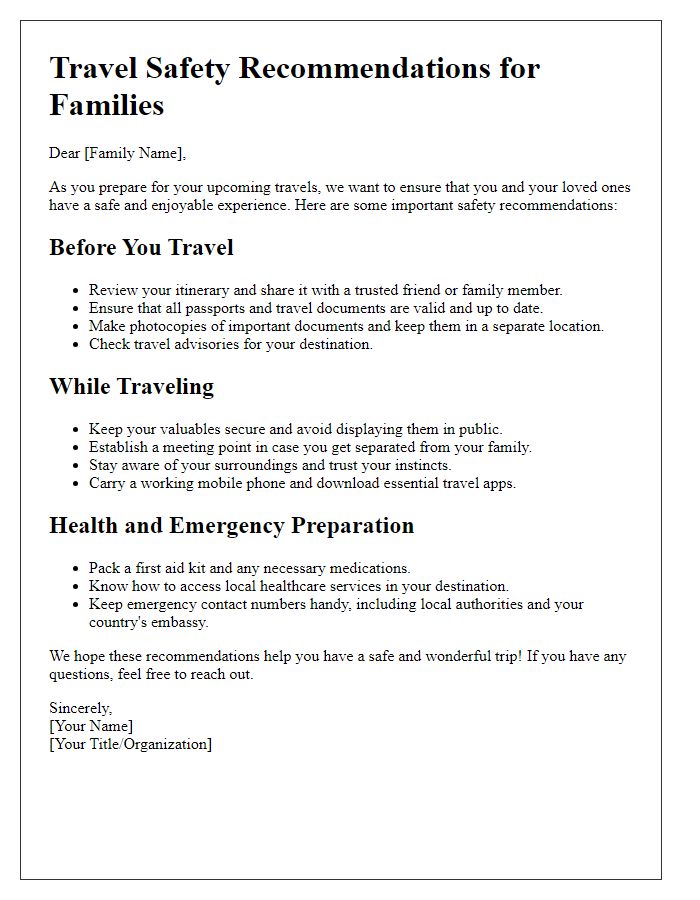
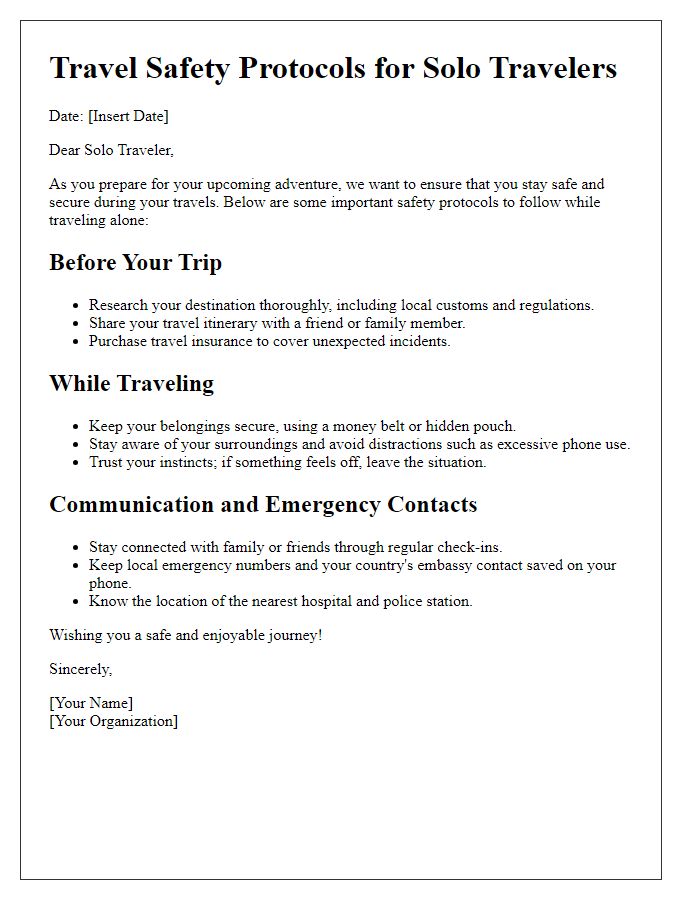
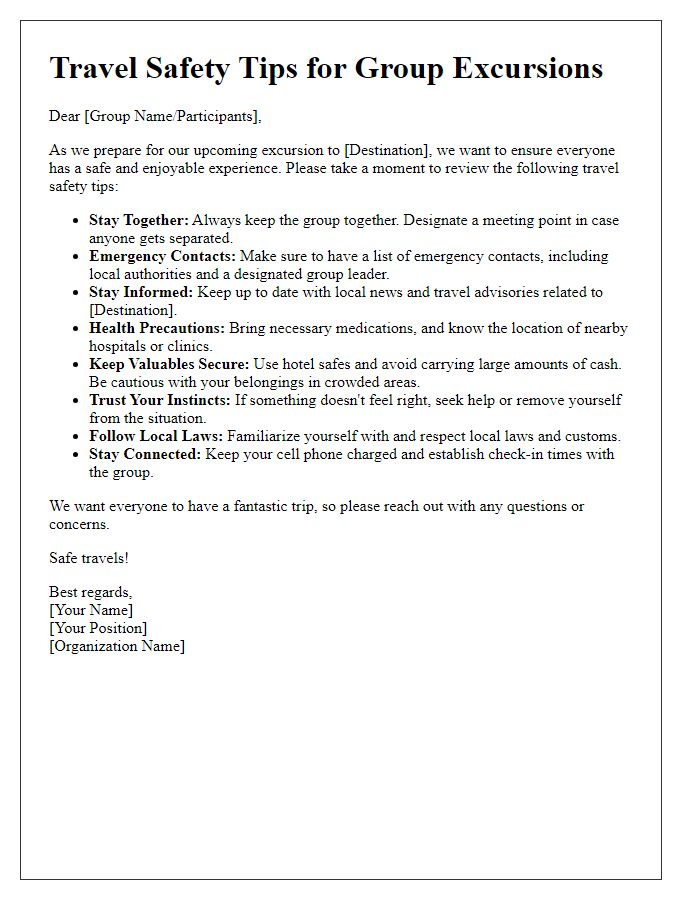
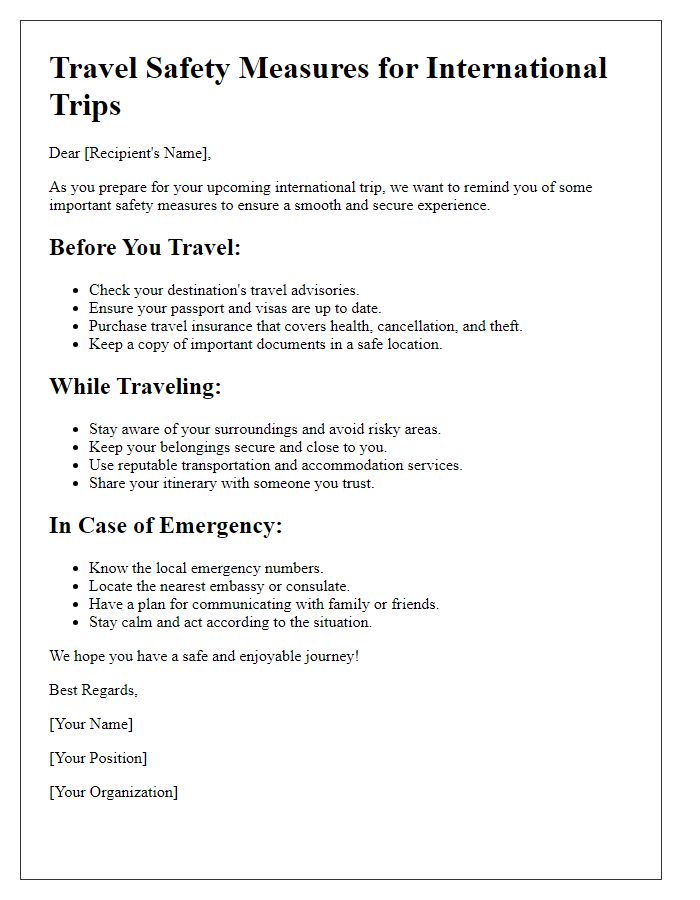
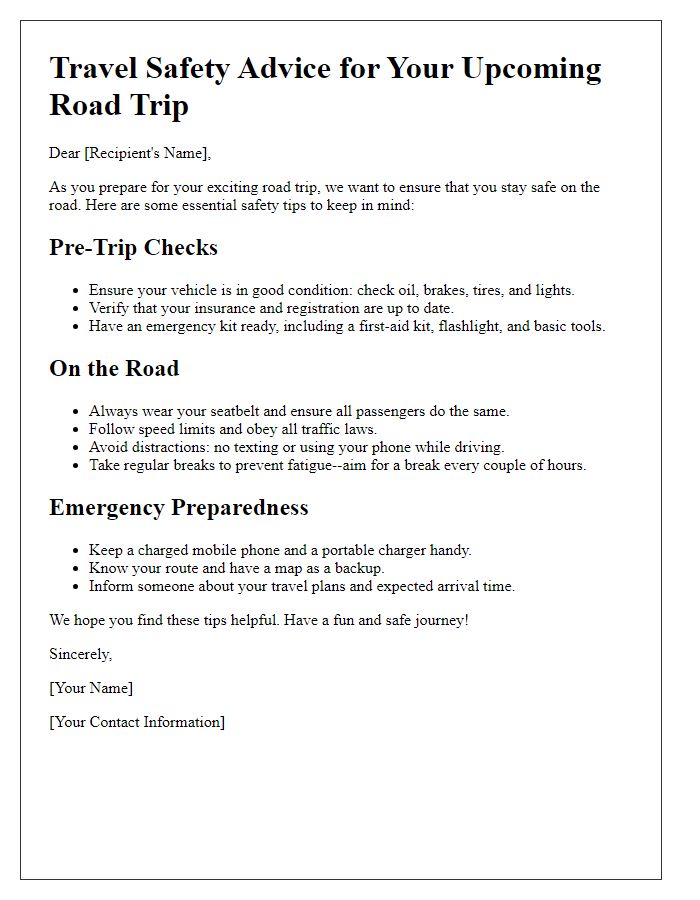
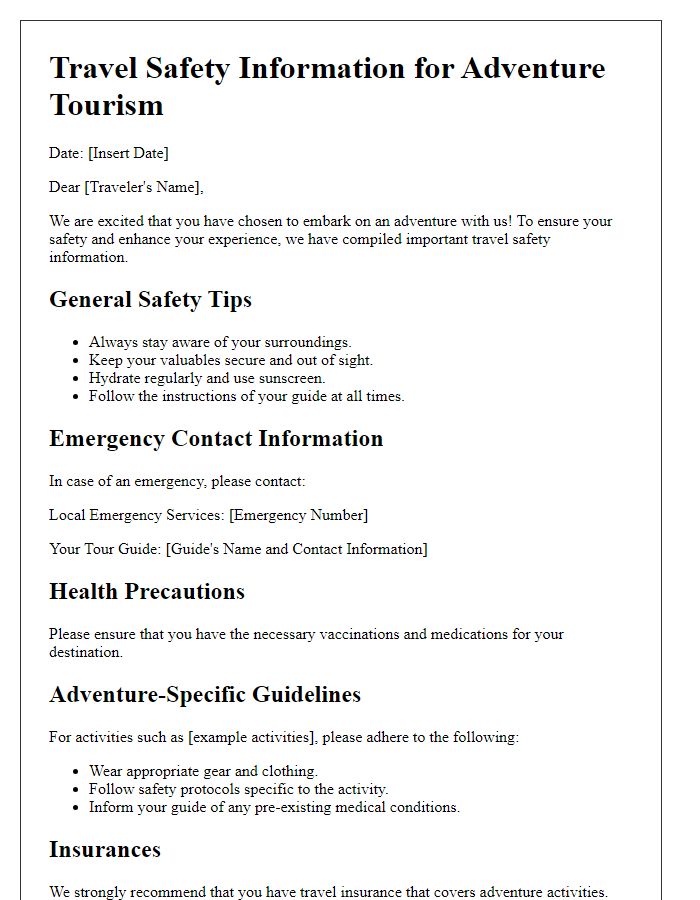
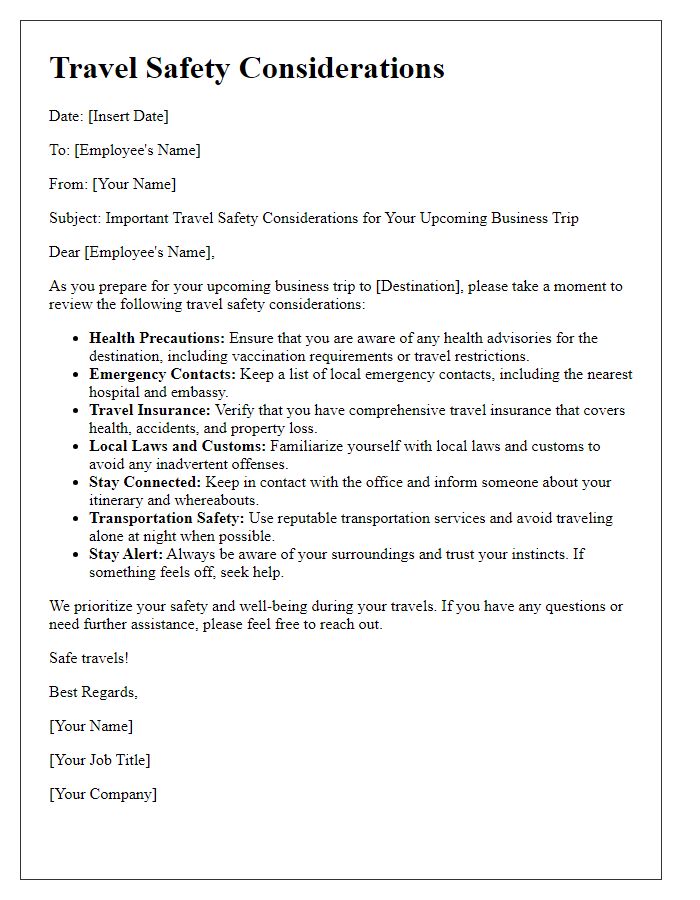
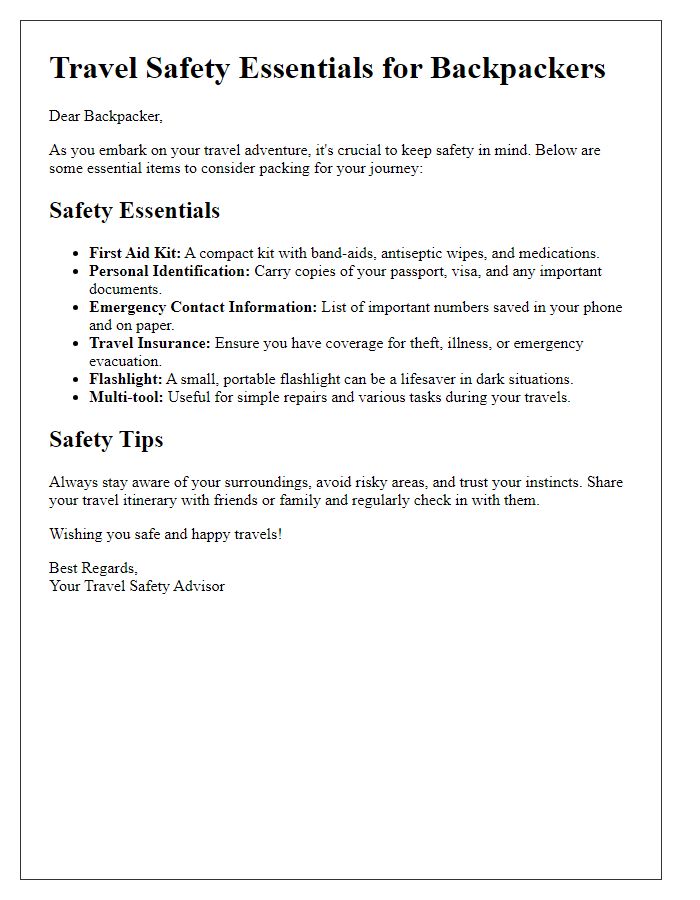
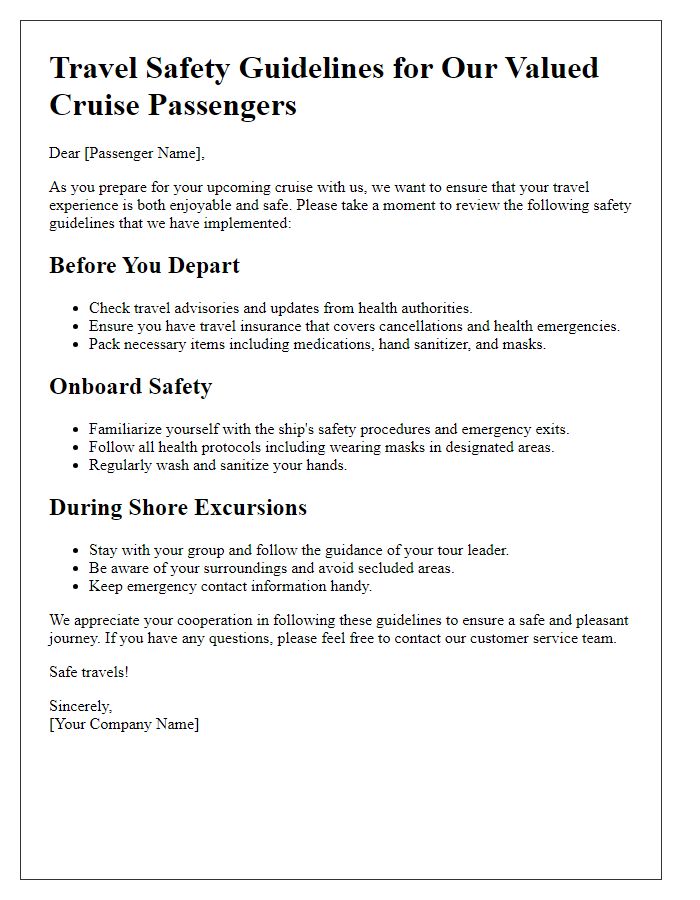
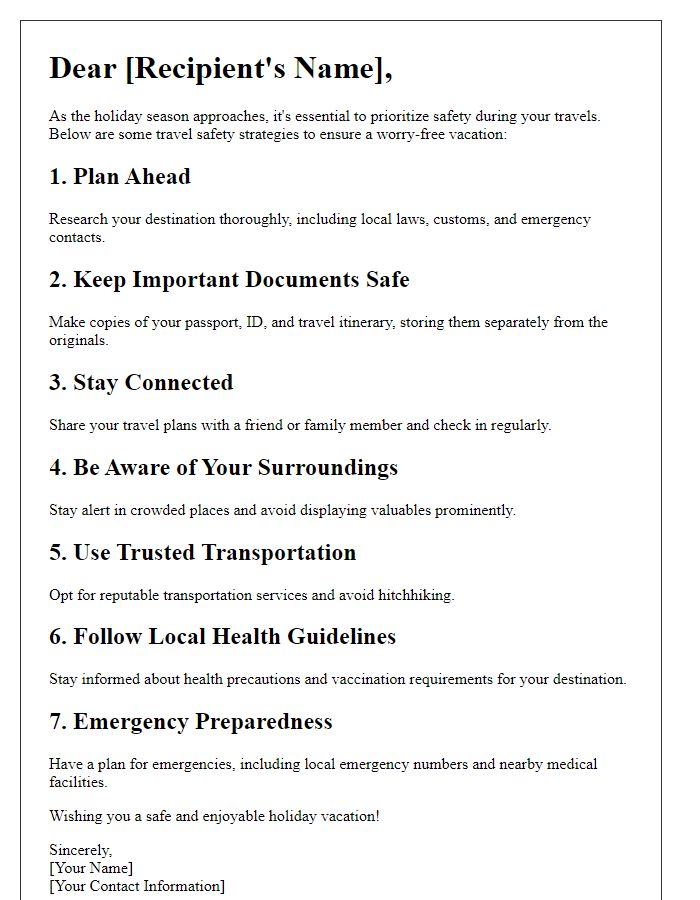

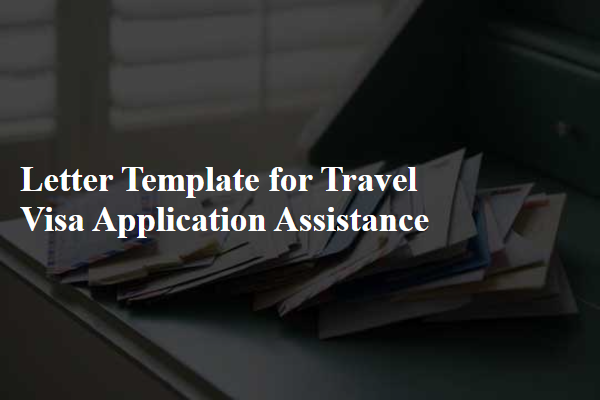
Comments